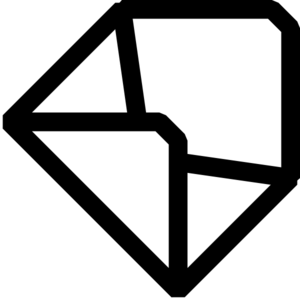| Jasmin C. "I help companies with their business transformations with IT enabled change. Essentially that means that when a huge company needs to change their business, implement a new system, or bring in some new technology, I help them get the most out of the technology so the business is ready for it. My job involves working closely with business users and tech teams by being the one in middle!" |
Education
Required License(s)
Bachelor's degree
|
Required Degree(s)
No, but I have a diploma in business analysis (which is very useful) and am a member of the British Computer Society. |
Importance of GPA

somewhat important
|
Jasmin's Highest Degree: Jasmin went to school in New Zealand
Jasmin's College Major: Biology specializing in Genetics
Salary
[Note from Nicole]: According to Glassdoor, the national average salary for a Business Transformation Consultant is $62,682.
Getting the Job
How did you get your job?
A degree which focused on critical thinking, a passion for technology, experience working in teams, and people skills!
|
Not at all. I applied for a graduate scheme.
|
Life on the Job
What is a typical day (or week) for you like?
As I'm a consultant, every day is hugely different. One day I can be working from home, designing a new business process, the next I can be wandering around a manufacturing warehouse, following an engineer around to see what they do, the next meeting senior execs to present findings. That is what I love about it—you will never get bored! It does involve working with a huge range of people, finding out about what they do, redesigning processes, developing change strategies, and helping implement them!
|
How closely does your typical day (or week) match up to the general "job description" for your position?
I would say there isn't a typical job description! Every role is so different, the main thing is being really adaptable and willing to learn. It is a huge learning curve on each project but it's just about getting stuck in.
|
Does being a woman affect any aspect of your career?
Being in tech, it is a hugely male-dominated industry. Being a women doesn't really affect me day to day, other than mainly being around a lot of male colleagues. I do wish more women thought about tech as an option though. There are so many jobs in tech which don't require a technical degree or sitting and coding—yes, I do quite a bit of tech work, but all that I've picked up since I joined.
|
What is the best thing about your job?
The variety—every day is different and interesting. There is a huge opportunity to gain experience in a huge amount of things and progress.
|
What is the worst thing about your job?
Travel and hours—as I'm a consultant, I'm expected to travel to clients at least for 3 days of the week which can lead to a lot of time on the road (another reason why there are less women in my industry). When work is busy, it can be very demanding on time but it usually balances out over time with the project.
|
How demanding is your job?
Hours can be tough sometimes but it does tend to balance out—you have some really busy times where you'll be working all evening, and then some quieter times. The travel can take a lot of time, but I balance it with working from home too.
It can definitely be mentally tough as you are thrown into a totally new situation every 3-12 months, which takes a bit of getting used to! |
Do you have any advancement opportunities?
Yes, you can work up the consulting grades to vice-president. I'm working on it!
|
Advice for You
What are the skills, characteristics, or talents that are most important to be effective in your position?
People skills—the ability to communicate and form meaningful relationships—is definitely the most important. Following that is the ability to absorb and process a lot of information about a business and present it logically, with a tiny bit of tech knowledge in there too.
|
What advice would you give to someone thinking about pursuing a career like yours?
I think most people don't think of this career, but I really encourage you to even if you don't have a tech degree—we take people from any degree background! You will need a good degree result/ GPA though, and some experience is great (I did a year at a healthcare company, and that helped in building up my communication and people skills).
|
If you could do it over again, would you still pursue the same career?
I think so! It can be tough in some aspects but it is really rewarding and interesting work.
|

Follow Up
Want to learn more?
|
 |









